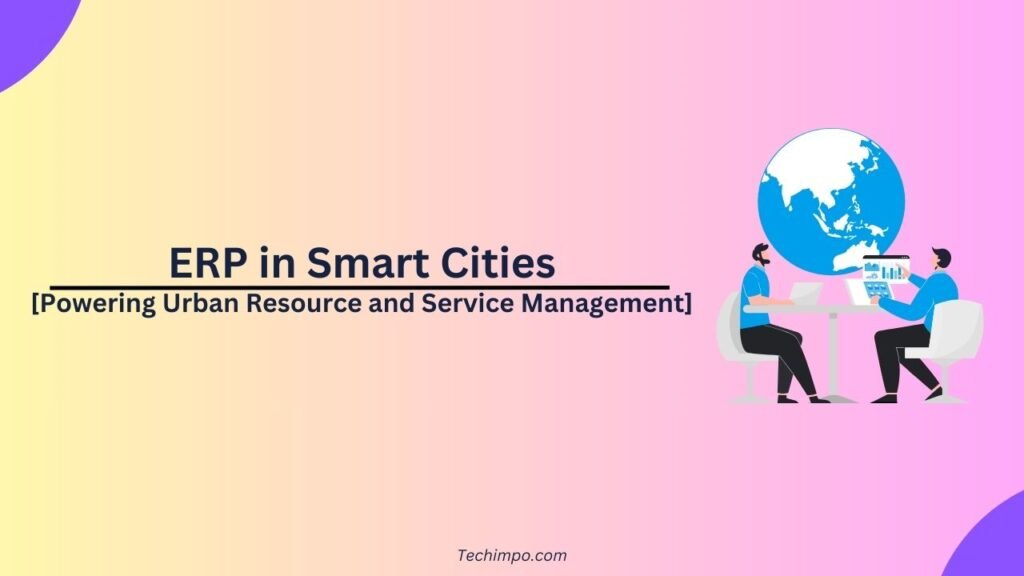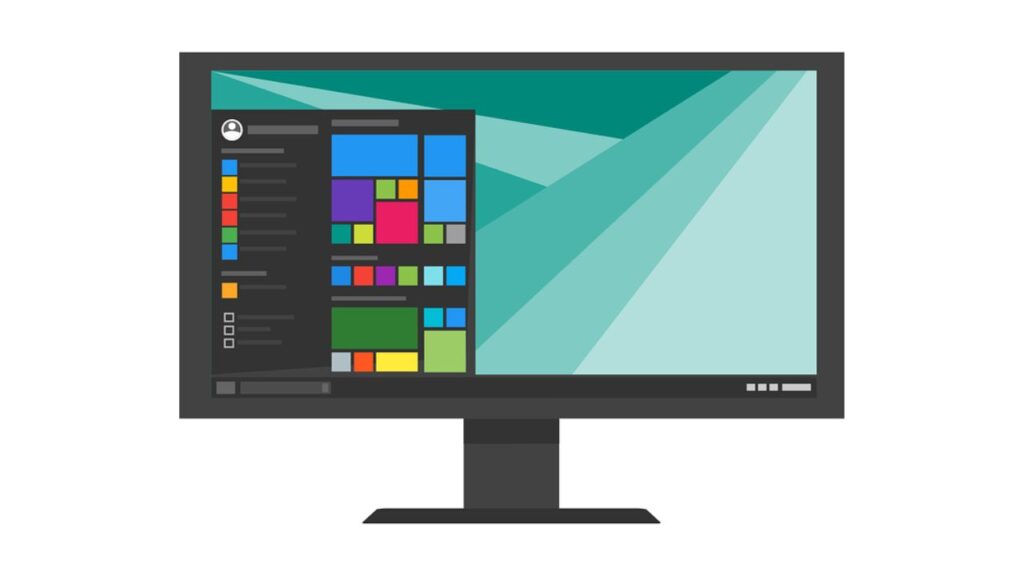As urban centers around the globe become increasingly integrated, eco-friendly, and tech-savvy, the idea of smart cities has evolved significantly, moving beyond the horizon to present-day existence.
Smart cities are dependent on information, online facilities, and machine operation to raise the standard of the most diverse fields, such as energy consumption, mobility, medical services, and interaction with citizens.
Essential for this radical change is the ERP (Enterprise Resource Planning) system that is being recognized as the main support for the management of the city’s resources, services, and decision-making activities.
The Role of ERP in Smart Cities
ERP (Enterprise Resource Planning) systems were initially conceptualized as digital systems to help businesses harmonize and accelerate their various operational activities by integrating functions in finance, human resources, supply chain, and customer management.
But as far as smart cities are concerned, ERP systems are handling more comprehensive processes than before. City administrations are functioning in a way similar to large companies, and ERP is resuming the role of helping them combine operations, among other things, guaranteeing the values of openness, responsibility, and efficiency.
Municipal authorities can track the resources and performance indicators in real-time by ERP, which facilitates the collection of data from different city services—transport, energy, water, waste management, healthcare, and housing.
Such an all-around solution assists the city planners in basing decisions on factual data, using funds prudently, and providing citizens with improved services.
Key Applications of ERP in Smart City Management
1. Urban Resource Allocation
Intelligent cities are always dealing with the problem of resource scarcity that may include water, power, or land. IoT devices and AI-based analytics can be integrated by ERP solutions to manage usage trends, identify losses, and allocate resources more efficiently.
As an example, via ERP, energy needs can be distributed evenly among various districts or water flow monitored to identify the source of leaks and ensure fair distribution.
2. Public Service Management
By utilizing ERPs in city governments, the provision of services may be made more efficient in such areas as health care facilities and waste collection, among others.
To be more precise, the ERP can be used to automate healthcare resource management, schedule waste collection according to live data, or even simply facilitate the maintenance of public infrastructure. Besides making savings, this also raises the level of citizen satisfaction.
3. Smart Transportation
Every intelligent city desires effective transport, which is considered the essence of the whole concept. ERP systems combined with traffic sensors, GPS, and public transit data enable managers to receive real-time insights on organizing the traffic flow, bus scheduling, and issuing maintenance alerts for urban transport systems.
By this way, the cities become more efficient without traffic jams and carbon dioxide emissions to be reduced.
4. Financial Transparency and Governance
It is definitely a very difficult task to handle the finances of the city. Local governments, through ERP, can track the flow of money, plan their budgets, and monitor the revenues that come from both taxes and services.
With these kinds of measures, officials not only keep crime at bay but also raise the city’s productivity and even get the trust of the people.
5. Sustainability and Green Initiatives
ERP systems are extremely important in facilitating urban areas to attain environmental objectives. Through the constant supervision of energy, pollutants, and waste production, ERP systems give cities measurable information for setting up sustainable policies.
Municipalities have the possibility with ERP to not only measure the steps taken towards the goal of zero emissions, but also make the best use of the green energy obtained.
Benefits of ERP in Smart Cities
Data-Driven Decision Making: Access to centralized and current data is a great advantage for proper decision-making by urban planners.
Increased Productivity: The adoption of automation of the work processes has a positive impact on the organization as it decreases the amount of required manual work and, hence, removes the slow spots in the operations.
Cost Optimization: Proper resource allocation, together with predictive maintenance activities, ERP for Smart Cities allows for the reduction of waste and loss of money.
Enhanced Citizen Experience: More rapid and dependable services are the main reasons for the citizens’ satisfaction, and thus, the quality of life is getting better.
Sustainability: Helps with the initiative of caring for the environment and with the smarter management of resources.
Challenges in Implementation
Though ERP has tremendous potential, using ERP at the city level is still a hiccup-
Cost A Lot: The process of implementation, integration, and co-functioning across various city departments can cost a lot of money.
Confidentiality of the Data: The collection of citizen and resource data in the city requires the highest cybersecurity standard.
Change in Behavior: City officials and employees must get used to the new digital systems.
Limitations of Growth Possibilities: ERP will have to be very adaptable to cater to the increasing number of people living in the city and the changing technologies.
The Future of ERP in Smart Cities
As more people move to cities, ERP will be the go-to solution for cities that want to grow in a sustainable way and be managed efficiently. The use of technologies such as AI, blockchain, and IoT, along with ERP, will allow for abundant possibilities like predictive analytics, automated governance, and transparent constituent engagement.
Eventually, ERP will be able to assist cities in becoming not just intelligent but also sustainable, socially equitable, and environmentally friendly.
Conclusion
ERP systems have transcended the boundary of corporate environments and are rapidly gaining the status of indispensable devices for navigating complicated, interlinked urban ecosystems. In the case of smart cities, ERP acts as the core or the mainframe, which integrates the resources, services, and data to provide improved governance.
By implementing ERP software, local governments can eventually plan efficient, functional, and practical urban areas, and subsequently, the upcoming cities will not only be able to absorb the fast growth of urban populations but also tackle the problems caused by it.
FAQs
Q1. How do you think ERP can help cities manage limited resources like water and electricity more effectively?
Answer: Resource planning (ERP) software’s are broad-based yet precise integration of IoT and data analytics to ease monitoring, leak or wastage discovery, and making distribution of the resources be ensured by equity thus leading to the management of resources that are more environmentally friendly.
Q2. What city service (transport, waste, healthcare, etc.) do you believe would benefit most from ERP integration?
Answer: Public transit is one of the major aspects that most people state as transport will be the biggest beneficiary of the ERP integration since ERP can improve traffic flow and public transit efficiency, but waste management and healthcare resource planning are also strong contenders.
Q3. Do you think ERP can make governments more transparent and accountable to citizens? Why or why not?
Answer: Certainly, the ERP system is a great tool to achieve this goal as it centralizes financial data, keeps track of all expenditures, and enhances reporting, thus the possibility of frauds is minimized, and citizen support is given.
Q4. With rapid urbanization, what challenges do you think cities might face while implementing ERP solutions?
Answer: Aside from the high costs, data security concerns, and scalability as populations grow, which are the biggest threats to city implementation of ERP, there is also the matter of managing change.
Q5. In your opinion, what’s the most exciting future possibility of ERP in smart cities?
Answer: Several people voice that the top three most exciting achievements would be AI-powered forecasting governance, continuous renewable energy monitoring, and the mere availability of digital services designed with the citizens in focus.
[Also Read: What is a QR Code Generator?]




